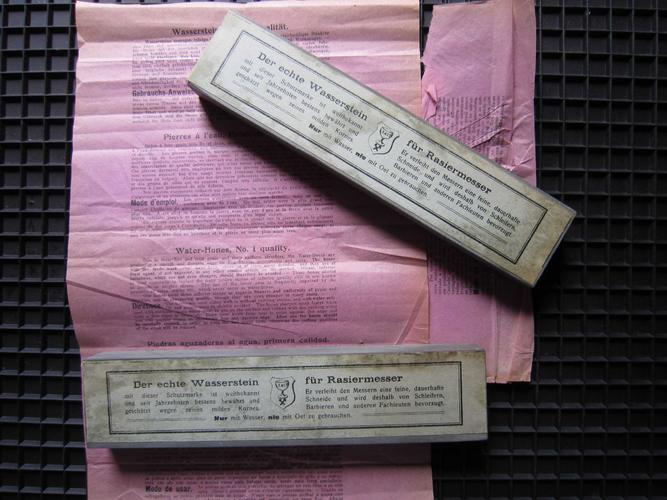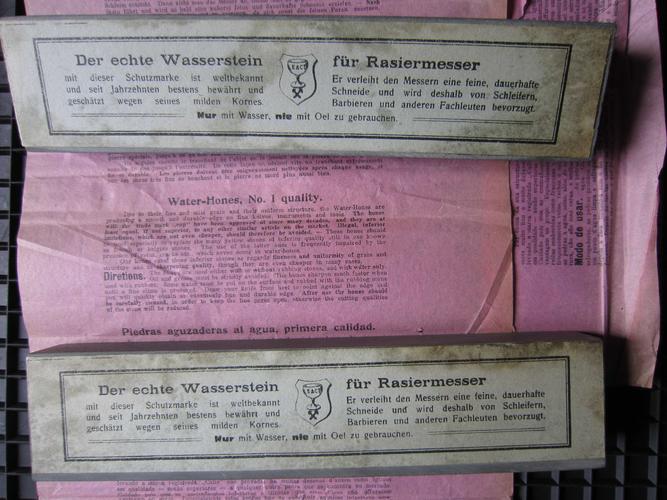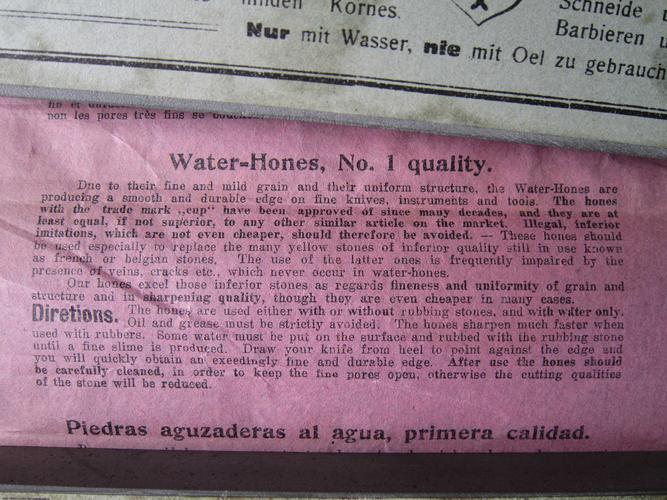Results 1 to 10 of 13
Thread: Escher with special instructions
Threaded View
-
04-14-2013, 02:12 PM #1
 Escher with special instructions
Escher with special instructions
The older Escher hones – The celebrated water razor hones- with the typical cup as trade mark signed E&Co have mostly not been sold in the card board boxes (even I do not have one example and haven’t seen one yet!) as it was typical later with the barber scene labeled hones.
But this cup-hones often came wrapped in red paper with special instructions.

Often you find a warning on the Escher labels, not to buy imitations of less quality.
The instruction on the shown wrapping paper goes a little bit further.

There has been a strong competition between thuringian hones and coticules especially in the 19th and the early 20th century. So you can read in the information of these instructions: “These hones should be used especially to replace the many yellow stones of inferior quality still in use known as French or Belgian stones. The use of the latter ones is frequently impaired by the presence of veins, cracks, etc. which never occur in water-hones. Our hones excel these inferior stones as regards fineness and uniformity of grain and structure and in sharpening quality, though they are even cheaper in many cases.”

The instructions are written in 5 languages on the paper: german, france, english, spain, portuguese.
-
The Following 3 Users Say Thank You to hatzicho For This Useful Post:
AljuwaiedAK (09-16-2015), Disburden (04-15-2013), Lemur (04-14-2013)


 24Likes
24Likes LinkBack URL
LinkBack URL About LinkBacks
About LinkBacks






 Reply With Quote
Reply With Quote
